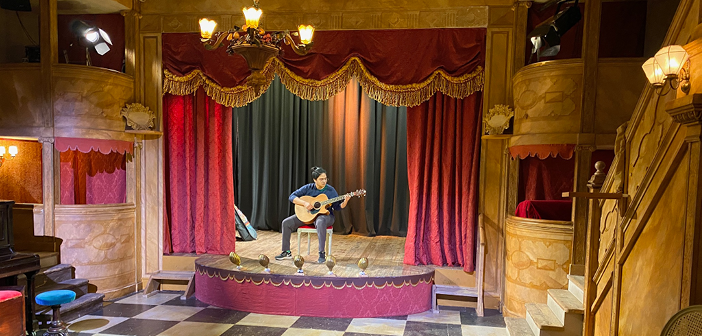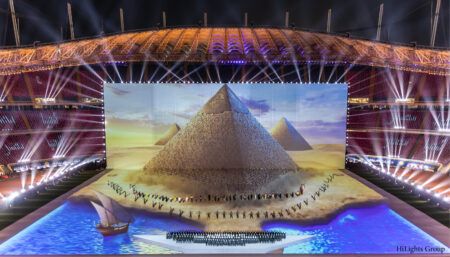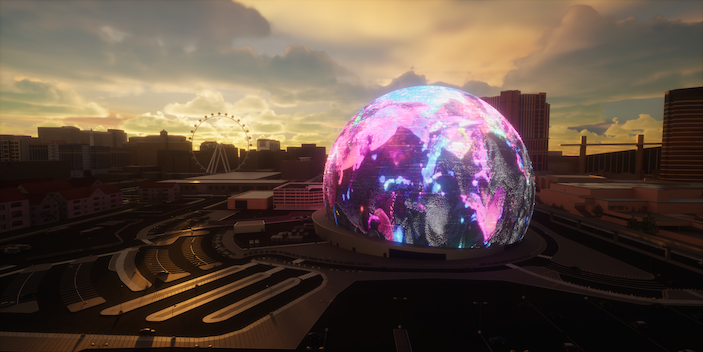During the pandemic, Sands Films opened up its studio to musicians, streaming the concerts to an online audience. It plans to continue, excited by the possibilities of a hybrid art somewhere between live and recorded performance.
Sands Films is an independent film studio and international costumier operating in an 18th-century listed building in Rotherhithe, London, UK. When Richard and Christine Goodwin founded the company in 1975, the site was in ruins and much work was required to turn it into a working building. Now it is an independent creative space run by a small community of individuals, working together motivated by a shared interest in art and culture.
The studio is the producer and maker of films including The Children’s Midsummer Night’s Dream, Little Dorrit and most recently The Good Soldier Schweijk. The stage is used by TV companies of all size and shapes for dramas, docudrama and current affairs programmes.
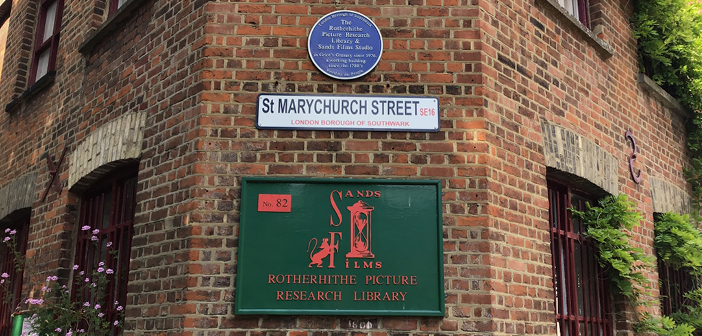
Meanwhile, the costume workshops supply a large proportion of period dramas – from small independent productions to large Netflix seasons. Past film and other projects include Marie Antoinette, Pride & Prejudice (2005) and the BBC’s 2015 series Wolf Hall.
Sands Films is also home to the Rotherhithe Picture Research Library, a visual reference collection that is freely available to anyone wishing to research – it operates as a non-profit-making educational trust.
Over the years many material changes have taken place, but the studio has retained its integrity of style and purpose.
Olivier Stockman was born in France in 1960. At a very young age he discovered a deep interest in film that would bring him to London at the age of 19, to work at Sands Films and develop his skills as a filmmaker/producer. In 2005 Stockman started the Sands Films Cinema Club, which is effectively a traditional film society, but uses modern technology to share Stockman’s passion for film history. The Cinema Club went online when COVID prompted lockdowns, and it has developed a mailing list of some 10,000 members.
The Sands Films Music Room
Music has always been important to Sands Films; performed in occasional concerts or as part of its productions or plays, but not as a fundamental part of the studios’ work. Fascinated by music and coming from a family with a musical background (with a relation to the great organist Marie-Claire Alain), Stockman expanded the idea of Cinema Club when the pandemic closed venues. He started The Sands Films Music Room, a digital workspace for musicians.
The initiative enables musicians to explore and develop their skills while reaching a vast audience, making use of the facility’s high-quality technological equipment. Sands Films Studio does not want to become a venue, but rather a creative workspace; a performing space that can adapt to each artist and their needs, perceived differently depending on the musician that steps into it.
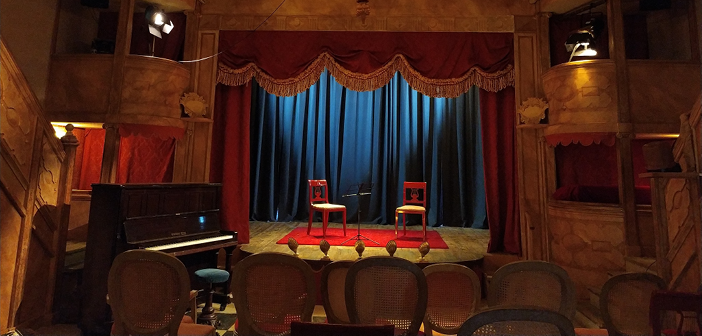
Perfection and spontaneity
The studio notes that we live in an era where most recorded music is polished and post-produced to achieve an illusion of perfection, but at the same time old live recordings from great musicians, from Horowitz to Miles Davis, are admired for their spontaneity. It believes that live streaming offers a hybrid experience somewhere between a live and a recorded performance. On the one hand, it allows for the authenticity of a live performance, and on the other, the possibility of capturing the musician at one point of their artistic journey. The aim of the Music Room is to persevere with this route and help musicians become free of an established conception of the performance tradition that the studio believes often separates them from their audience.
The project materialised during the pandemic hit as its necessity had become more urgent than ever. Over the year of running the series, the studio says that despite the lack of an audience in the room, performers seem to be more themselves and personal with their virtual audience. This is why, in the future the studio hopes to keep developing the series in this direction, but also giving each artist the choice of having a reduced audience present during the stream.
The first concerts in the Sands Films Music Room were conceived in collaboration with musicians living in the area. After months of being deprived of a stage, viola player Lorena Cantó Woltèche and pianist Yvain Calvo Caballero opened the series in July 2020, reaching thousands of viewers from all over the world live from the beautiful theatre of the Sands Films Studios.
Non-specialisation
Since then, sticking to the studio’s mission of giving equal opportunities to all artists, a wide variety of performances have taken place, in genres including classical, early, jazz, folk and traditional music. All these are still available to enjoy online. There have been performances from international artists in London’s contemporary music scene, including by Fred Thomas (with Alice Zawadzki, Barnaby Keen, Jamie Doe and more), The Vortex Jazz Club, The Jubilee String Quartet, Musica Antica Rotherhithe and Sinfonia Humanitas.
On a normal basis, the audience can tune in every Thursday evening at 8:00pm GMT, either to the Sands Films website or its YouTube or Vimeo channels. There is also a Facebook channel, facilitating community discourse.
Although Sands Films pays all musicians a recording session fee, the streams are always supplied free, so that they are accessible to all, including those simply curious. Instead of selling fixed-price tickets, Sands Films ask for donations from its audience – very much as a kind of internet busking. The studio says this model is unconventional in the modern world but that it is essentially the way musicians have earned a living for thousands of years.


